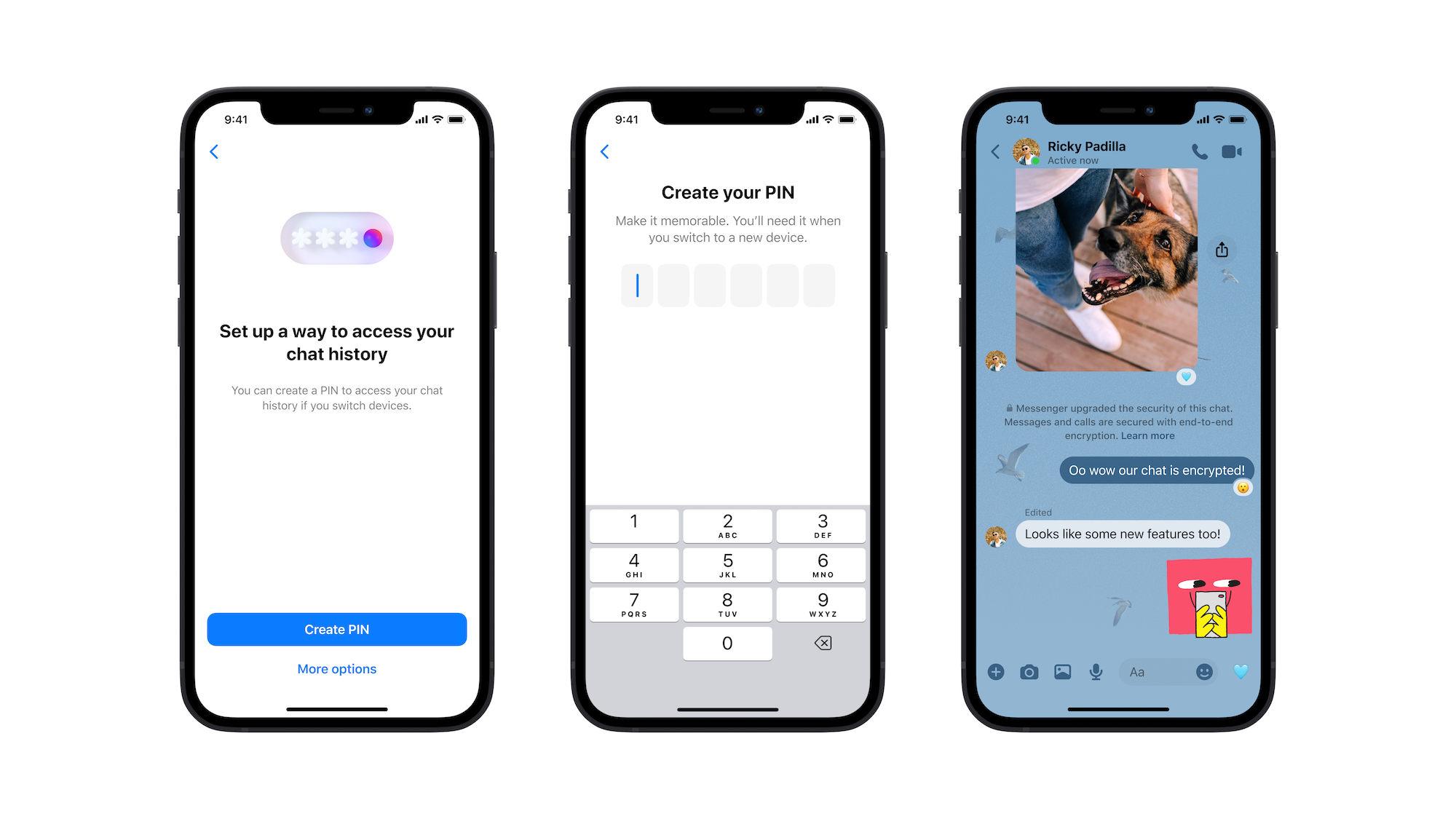

Years after plans were first announced, end-to-end encryption (E2EE) is finally the default communications option for Messenger and Facebook. Meta’s security update arrives following years of mounting pressure from digital privacy rights advocates, who argue the feature is necessary to protect users’ communications.
A complete E2EE rollout will take a “number of months” due to the more than one billion users on Messenger. Once chats are upgraded, however, users will receive a notification to create a recovery method, such as a PIN, for restoring conversation archives in the event of losing, changing, or adding a device.
[Related: 7 secure messaging apps you should be using.]
Meta’s messaging services have offered E2EE as an optional setting since 2016. CEO Mark Zuckerberg voiced his desire to transition to default encryption across all Meta’s products as far back as 2019. In an announcement posted to Meta’s blog on December 6, head of Messenger Loredana Crisan wrote, “[E2EE] means that nobody, including Meta, can see what’s sent or said, unless you choose to report a message to us.”
E2EE is one of the most popular and secure cryptographic methods to integrate additional privacy within digital communications. Once enabled, only users possessing a unique, auto-generated security key can read your messages. When set up properly, it is virtually impossible for outside parties to access, including law enforcement and the app makers themselves.
[Related: Some of your everyday tech tools lack end-to-end encryption.]
Services like iMessage, Telegram, WhatsApp, and Signal have long offered E2EE as their default setting, but Meta was slow to integrate it within the company’s most widely used features. In the company’s December 6 blog post, Crisan argues the company “has taken years to deliver because we’ve taken our time to get this right.” Critics, meanwhile, chalk up the tech company’s reluctance to financial incentives, as access to users’ messages means access to vast, lucrative data troves that can be utilized for targeted advertising campaigns. People share over 1.3 billion photos and videos per day through Messenger.
“Meta just did something good—protected users from the company itself!” Caitlin Seeley George Campaigns and Managing Director at the digital privacy group, Fight for the Future, wrote in a statement on Wednesday.
In addition to the E2EE update rollout, Meta also announced forthcoming features including a 15-minute “Edit Message” window, the ability to toggle “Read” receipts, a 24-hour timespan for “Disappearing” messages, and other general updates to photo and video quality.
